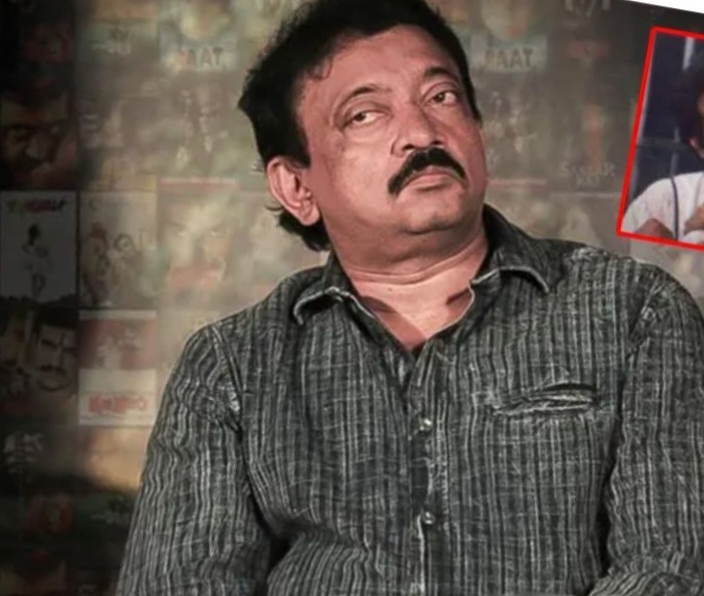
Ram Gopal Varma Reflects on Satya After 27 Years, Vows to Create Dignified Films Moving Forward
Mumbai, 2025: A director known for his bold and often controversial choices, Ram Gopal Varma has always been a figure whose films provoke thought and conversation. But in a recent emotional post on social media, Varma shared a deeply personal reflection on one of his most iconic films, Satya, marking the 27th anniversary of its release. The film, which starred JD Chakraborty and Manoj Bajpayee in key roles, remains one of the most influential and respected works in Indian cinema. As Varma watched the film again after nearly three decades, he found himself moved to tears—not just by the film itself, but by the consequences and journey that followed its success.
The director’s post delved into the raw emotions he experienced while revisiting Satya. He confessed that he had never truly understood the greatness of the film until recently, and admitted that he had failed to recognize its significance in the larger context of his career. “I watched Satya for the first time after 27 years. I cried without knowing it. It wasn’t just for the film itself, but for the many memories that it brought back. I remembered the consequences that followed after the film’s success, and the realization that I hadn’t treated it as a benchmark for my career,” he shared.
Varma’s reflection took a deeper turn as he began to explore the emotional weight of success and the impact it had on his filmmaking journey. He spoke of how the success of Satya and other early works, like Rangeela, filled him with a sense of pride and intoxication. In a poignant admission, he revealed that he became consumed by the success of his films, leading him to prioritize gimmicks, vulgarity, and spectacle over meaningful storytelling. “I became a drunkard. Not because of alcohol, but because of the pride and success that my films gave me,” Varma confessed. “I failed to understand the greatness of Satya. With films like Rangeela and Satya, I had the light, but I couldn’t see it clearly. I became obsessed with impressing the audience, rather than telling compelling stories.”
Varma’s words highlighted a pivotal moment in his career—a realization that the path he had taken since the release of Satya had been shaped more by the pursuit of success than by a commitment to meaningful cinema. “I made films with the aim of impressing, surprising, and shocking the audience,” he explained. “But I lost sight of what really mattered: the heart of the story, the narrative, and the emotion that should drive a film.”
It was only after watching Satya again that Varma recognized how much he had deviated from the standards of excellence set by that film. He admitted that he had allowed his pride and ego to guide his decision-making in the years that followed, creating films that often prioritized spectacle over substance. “I’ve made many successful films, but none of them have the greatness that Satya possesses,” he said. “The industry gave me many opportunities, but I failed to see them for what they were. I cannot undo my past mistakes, but I can promise to make a change moving forward.”
In his post, Varma made a solemn promise to himself and his audience. He vowed that from now on, every film he made would be a reflection of his dignity as a director—a commitment to creating meaningful, impactful cinema that would honor his legacy. “I may never make a film like Satya again, but I refuse to create anything that falls short of its standard. If I can’t make films of that caliber, then I will be a traitor to the art of filmmaking,” he declared. “From now on, I will make films that enhance my dignity as a filmmaker, films that have substance and heart.”
Varma also revealed that he had set a personal rule to always watch Satya before embarking on any new project. He expressed regret that he hadn’t followed this rule in the past, suggesting that had he done so, many of his films would never have been made. “I have made a rule to definitely watch Satya before deciding to make any film. If I had followed this rule for the films I’ve made so far, I would have made 90 percent fewer films,” he admitted.
Ending his post on a note of determination, Varma promised to spend the remainder of his career pursuing films that restored his dignity as a director. “I still have half of my life left, and I want to spend it making films that are true to my art. I want to make films like Satya. This is my truth, and I swear this truth on my film Satya,” he concluded.
The director’s candid reflection has resonated deeply within the film industry, striking a chord with many who have admired his earlier works. Varma’s decision to return to the roots of meaningful storytelling, after decades of experimenting with different genres, is a reminder of the importance of substance over spectacle. His vow to create films that align with the quality and impact of Satya marks a new chapter in his career—one that promises to be defined not by the pursuit of accolades or fame, but by the desire to create timeless, meaningful cinema.


